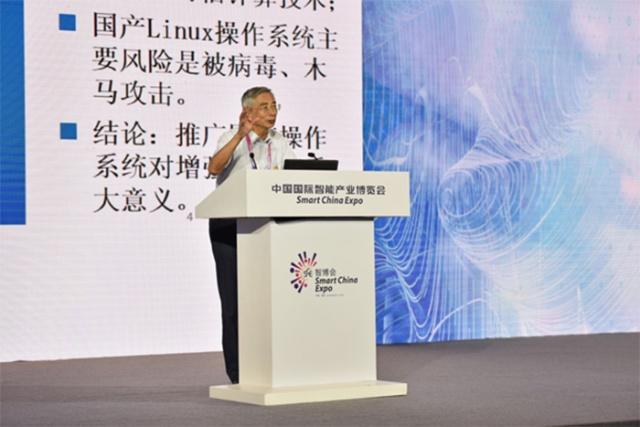Ni Guangnan: China ranks second in the world in both network information and chip design, respectively.
Although the ZTE incident is over, the Chinese government and enterprises are worried about the inability to fight back after core technology is subject to sanctions. How to keep key technology from being blocked has become a major problem. In the "27th Sino-Foreign Management Seminar", Ni Guangnan, academician of the Chinese Academy of Engineering, attended the meeting and delivered a speech entitled "Deep thinking on the pain of made-in-China core technology ", noting that China has already ranked second in the world in both network information technology and chip design while equipment localization rate is less than 20% with many materials relying on imports.

He believes that "the development of information technology in the field of network information is very fast. China lags far behind developed countries in the traditional fields such as cars and aircrafts. Although network information is also backward, backward is obviously much less. Because it’s relatively new and the development is relatively fast, the beginning is not much poor. So we conclude that China ranks second in the world in both network information technology and industry.”
Referring to the ZTE incidence, NI Guangnan said, "Greatly, the number of Chinese chip design enterprises ranks first in the world and the strength has reached the world's second place. Some of our chip design are as good as the best in the world, especially for mobile phones, severs and processors used commonly and manufactured difficultly. However, we are short in manufacturing. SMIC is the best and biggest chip manufacturer in China, ranking fifth rather than second. According to our analysis, equipment localization is less than 20% with many materials depending on imports. In addition, EDA design is a weakness. From the perspective of chip industry, it is easy to get blocked due to relying heavily on imports. ”
His speech, which is actually about domestic alternative to overseas products, is similar to another in Smart Information Security Forum in Chongqing, targeting at achieving localization substitution in four areas, as follows:
The Wintel system is replaced by domestic desktop technology on desktop systems, while Intel processor is displaced by domestic Linux systems as well as Loonson, Sunway, and Phytium processors.
Domestic high-end servers replace IOE, namely IBM mainframes, Orcale databases, and EMC storage devices.
ERP enterprise management system uses domestic Brocade ERP instead of SAP ERP system.
The Industrial control field uses domestic SylixOS to replace Wind River 's VxWorks system.
NI Guangnan argues, "each of us should be self-controlled. In the process of substitution, even if they are not perfect and the environment is incomplete, we should support such enterprises."
The core of network security is technical security. In order to achieve autonomous controllable in computational security and network security, we hope to be able to promote autonomous controllable products. This is a scientific issue which requires a scientific third party to make conclusions. No matter how good its price is, if the autonomy cannot be controlled, it will be rejected by one veto. ”
